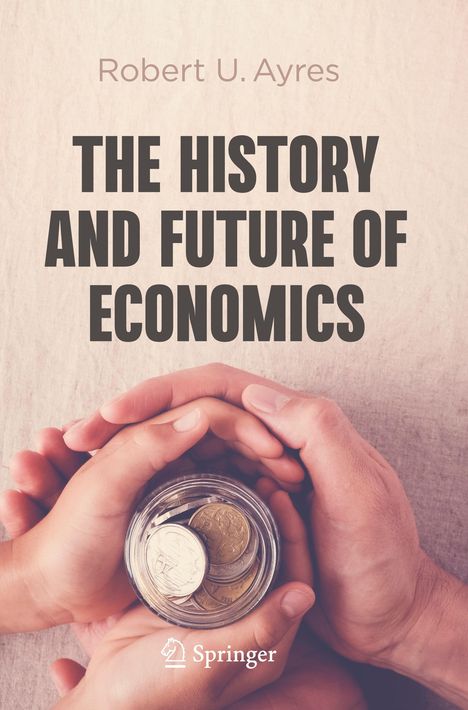Robert U. Ayres: The History and Future of Economics, Kartoniert / Broschiert
The History and Future of Economics
Buch
lieferbar innerhalb 2-3 Wochen
(soweit verfügbar beim Lieferanten)
(soweit verfügbar beim Lieferanten)
Aktueller Preis: EUR 54,75
- Verlag:
- Springer International Publishing, 05/2024
- Einband:
- Kartoniert / Broschiert, Paperback
- Sprache:
- Englisch
- ISBN-13:
- 9783031262104
- Artikelnummer:
- 11856521
- Umfang:
- 412 Seiten
- Nummer der Auflage:
- 2023
- Ausgabe:
- 2023
- Gewicht:
- 697 g
- Maße:
- 235 x 155 mm
- Stärke:
- 21 mm
- Erscheinungstermin:
- 1.5.2024
- Hinweis
-
Achtung: Artikel ist nicht in deutscher Sprache!
Weitere Ausgaben von The History and Future of Economics |
Preis |
|---|
Klappentext
The purpose of this book is three-fold. The first purpose is to posit that the fundamental substance of the universe is energy, and that energy is required (consumed) for any material transformation, or information transmission. The labor theory of value, articulated by the physiocrats and elaborated by Adam Smith, David Ricardo, J. B. Say and Karl Marx was a rough first approximation of the value creation process, in the 17th and 18th centuries, but is now obsolete. Labor is now (mostly) performed by machines, not by humans (or animals).The second aim of the book is to argue that the economy is a living (open) system -- an island of order that exists far from both thermodynamic and economic equilibrium. Order is achieved by dissipating a flux of exergy. Economists frequently emphasize the equilibrium assumption, introduced originally by Leon Walras in 1854. But in reality, biological systems and human social systems are dissipative cycles, far from both thermodynamic equilibrium, and economic equilibrium, yet stable and capable of evolution, driven by the solar exergy flux.
The third aim of the book is to re-emphasize, that being open the economic system cannot be regarded as a collection of individual competitive utility-maximizing transactions. There are, increasingly, important possibilities for cooperation instead of competition. Moreover third party effects, both bads (externalities) and the public good (happiness) need to be incorporated into the socio-economic decision making process.

Robert U. Ayres
The History and Future of Economics
Aktueller Preis: EUR 54,75

